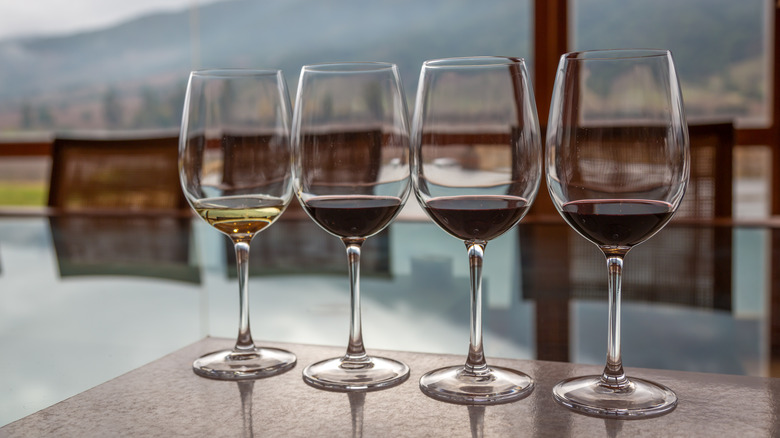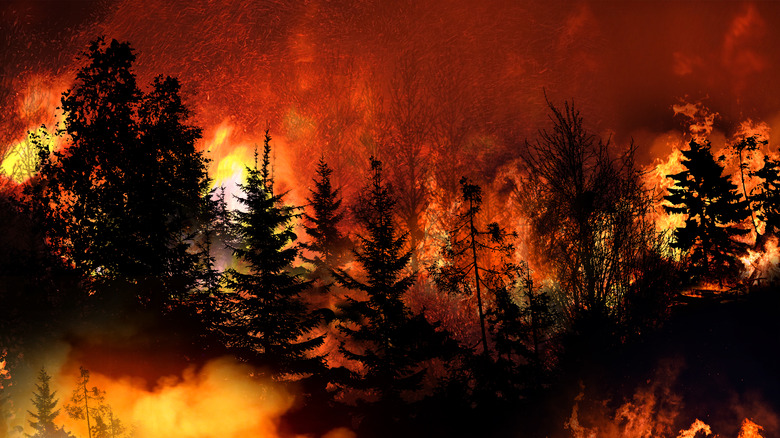How The Wildfires In Chile Will Impact The Wine Industry
Massive wildfires have been burning in southern and central Chile since late January 2023, and the toll — both in terms of lives lost and in homes and agricultural devastation — has been enormous. More than 26 people have died, an excess of 1,500 homes and nearly 900,000 acres of forests have been destroyed, and the fires continue to burn, with more exceedingly hot weather ahead in the forecast. In fact, NASA's fire mapping data shows there are more than 280 wildfires currently burning in Chile.
Chile experienced terrible wildfires in 2017, and in coverage exploring the connection between climate change and the rising temperatures in the country that create conditions that allow wildfires to spread more quickly, an NPR correspondent surveyed the damage to vineyards with Geraldo Leal, viticulture manager for Santa Rita Estate, one of Chile's most important wine producers. As a result of rising temperatures, compounded with wildfire damage, NPR reported that wine producers in the north and center of the country were eyeing the southern regions as more favorable, thanks to a climate that's both cooler and wetter. In 2023, it is precisely those cooler, wetter areas that are under siege from dangerous wildfires, with an impact the Chilean wine industry will most certainly feel.
Wildfire effects will extend beyond 2023
There are sobering statistics for Chilean winemaking as a result of the 2023 wildfires. More than 400 hectares of vines have been destroyed, including some planted in 1798; treasures that can't be recovered. For 2023's harvest, which starts in late February, will almost certainly contain grapes affected by the smoke from the fires.
Leo Erazo, a winemaker in the Itata Valley, has lost 90% of his vines in the wildfire. While he knows the financial loss pales in comparison with the people who've lost homes and lives, he doesn't have high hopes for the grapes that remain and will be harvested soon. He said (via Wine Enthusiast), "We are going to make wine anyways. It's probably that the wines will have smoke taint, but we won't know until we make them."
The fact that wildfires have consumed vineyards as far south as the Araucania region, home to the Malleco Valley, means that grape growers are running out of places to plant that won't be affected by rising temperatures and drought conditions that make the area susceptible to more fires in the future. Winemaking in Chile directly accounts for roughly 100,000 jobs, according to Wines of Chile, which means the economic impact of a smaller harvest will be profound. The Hispanics in Wine website has information about the wildfires, along with links to resources for those who would like to help support recovery efforts.

